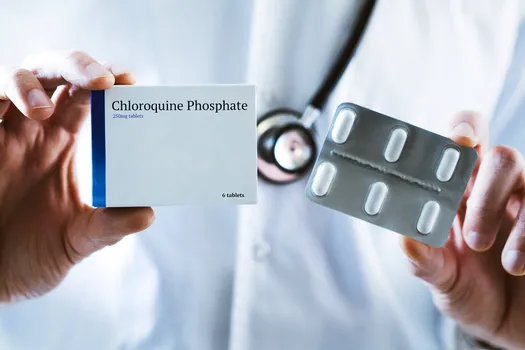
But whether these drugs will help, hurt or do nothing remains an open question.
Scientists strongly support these trials, but are equally vehement that these drugs should only be used in the context of a clinical trial – to carefully test effectiveness, be on the lookout for any negative effects, and to ensure that there is an adequate supply of the drugs if they prove useful.
“This is a virus that targets health care workers,” because they are in close proximity to very contagious people, says Warner Greene, a senior virologist with the Gladstone Institutes, an independent, nonprofit research organization based in San Francisco. “We have to do everything we can to protect them.”
Treatment Then Prevention
First, a hope. Sometimes drugs that effectively treat a disease can also be used to prevent its appearance, says Greene, also a professor of medicine, microbiology and of immunology at University of California San Francisco.
The virus that causes COVID-19 uses a backdoor to enter the cell. As it enters, it is exposed to an acidic, vinegar-like environment, which is actually needed for the virus to get all the way inside. Hydroxychloroquine, metaphorically keeps the cap on the vinegar, Greene says, preventing acidification. Thus, there is a scientific rationale for how this drug might exert an antiviral effect, he says.
Looking Elsewhere for Help
Hydroxychloroquine, he says, helps the zinc get inside the infected cells to destroy the virus, and vitamins C and D support immune function. He gives volunteers a low dose of hydroxychloroquine every 3 weeks, and a vitamin tablet every day – or every other day for people prone to kidney stones. The trial will check in on participants every 10 days, he says, looking for blood levels of the vitamins. At the end of the trial, each participant will be checked for antibodies to COVID-19, suggesting an infection, whether they realized it or not.
Even if his approach doesn’t prevent infection with COVID-19, Ozmen says he hopes it will reduce the severity of the illness.
“That kind of prophylaxis will give us the time,” Ozmen says, to develop a vaccine that will offer protection to everyone.
A trial of just 100 people is helpful, but does not provide definitive information about the risks and benefits of a particular drug. To do that requires many times more volunteers
Bigger, Faster Trials Planned
In perhaps the fastest-moving, large prophylaxis trial, researchers at Duke University are leading a $50 million collaboration across hundreds of American healthcare systems, which will test 15,000 volunteers. Half the health care workers will take hydroxychloroquine, and half a placebo. Other drugs could be added to the study if they prove promising for preventing or lessening infection, says Adrian Hernandez, the trial’s principle investigator.


